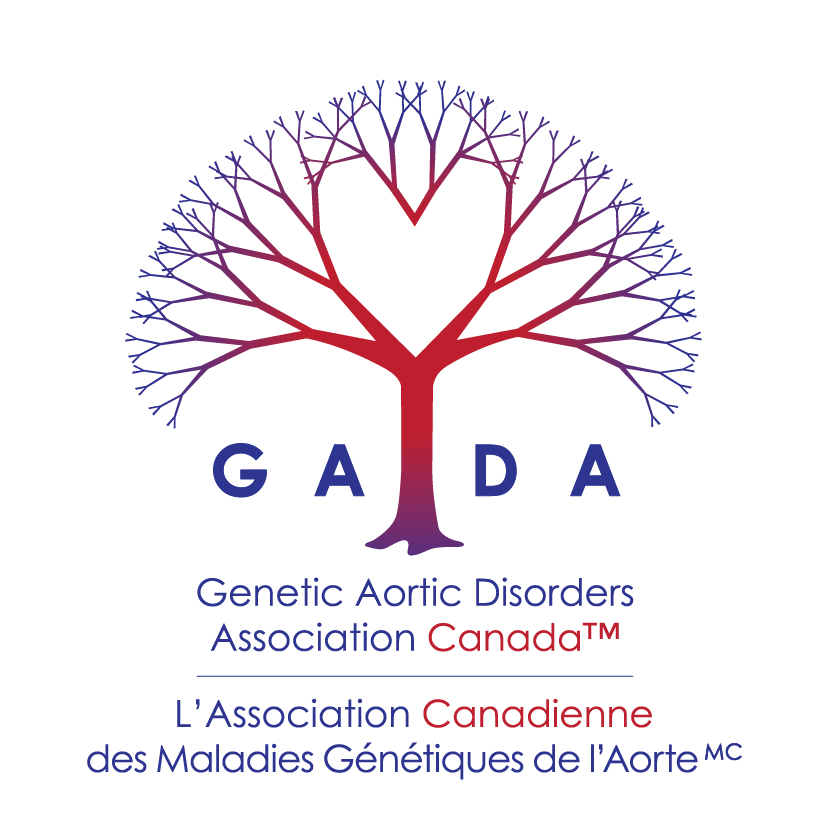SMDS & Cardiology:
Insight from a decade of caring for patients
WeBINAR RECORDING AVAILABLE
Dr. Angela Yetman, Pediatric and Adult Cardiologist, Omaha, Nebraska, addressed the cardiovascular care for Smooth Muscle Dysfunction Syndrome (SMDS).
Dr. Yetman has over 20 years of experience caring for patients with disorders of the aorta, including ACTA2. She is a member of the Montalcino Aortic Consortium (MAC) Executive Committee, actively enrolling patients with genetic diagnoses for aortic disease in the MAC patient registry for research.
GADA Canada supports ACTA2/SMDS research by funding the patient registry of the Montalcino Aortic Consortium that is a repository of data from international aortic centers for studies driving precision medicine of different genetic aortic diseases.
Smooth muscle dysfunction syndrome (SMDS) is a rare autosomal dominant condition caused by specific pathogenic variants of ACTA2 gene that result in impaired smooth muscle contraction (variants altering the amino acid arginine 179). An early diagnosis of SMDS, multidisciplinary care and surveillance and timely management of symptoms are extremely important to reduce risk of complications, because of the severe involvement of the cardiovascular system. Join us to learn more from Dr. Yetman about multisystemic complications and cardiovascular care of this genetic condition.
ABOUT THE SPEAKER:
Angela Yetman, MD
Professor, Division of Cardiology
Program Director, Adult Congenital Heart Disease Fellowship
Medical Director, Marfan & Thoracic Aorta Disease Program, Children's Hospital & Medical Ctr, Omaha, Nebraska
Dr. Angela Yetman is a Pediatric and Adult Certified Cardiologist, with a focus on congenital heart disease and diseases of the aorta. Her clinical interests include the care of adolescents with congenital heart disease and care of patients of all ages with Marfan syndrome, aortic aneurysms, bicuspid aortic valve and Turner syndrome. She works closely with members of the cardiothoracic surgery and vascular surgery divisions to provide comprehensive care to patients with aortic disease.
EVENT DISCLAIMER: The information, in particular, the medical and scientific information, contained during the ACTA2 virtual event is provided with the understanding that this program is provided by voluntary health organizations and is not engaged in rendering medical advice or recommendations on diagnosis or treatment of any aortic disease or genetic aortic disorder. The contents of this webinar, such as presentations, discussions, text, graphics, images, and other materials are for educational and informational purposes only and as a benefit and service in furtherance of GADA Canada and the John Ritter Foundation. Genetic aortic disorders are complex and multi-systemic and that can only be properly diagnosed and managed by skilled and trained health care professionals. The manifestations and severity of these disorders vary greatly among individuals and require personalized medical management. None of the medications, courses of treatment or lifestyle & activity recommendations discussed in this virtual event or the websites of Gadacanada.ca or JohnRitterFoundation.org, should replace necessary consultations with qualified health care professionals.

